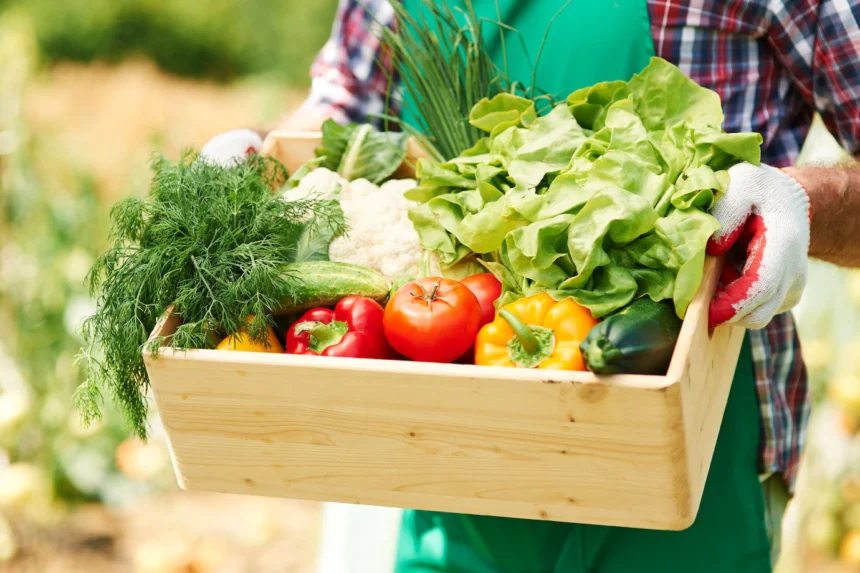Organic farming is an agricultural practice that emphasizes the use of natural methods and materials to produce crops while minimizing the use of synthetic inputs such as chemical fertilizers, pesticides, and genetically modified organisms (GMOs). In South Africa, organic farming has gained popularity due to its numerous sustainable practices and associated benefits. Here are some of the sustainable practices and benefits of organic farming in South Africa:
- Soil Health and Conservation: Organic farming focuses on improving soil health through practices such as crop rotation, cover cropping, and the use of organic matter like compost and manure. These methods enhance soil fertility, structure, and water-holding capacity, leading to healthier and more productive soils. Additionally, organic farming minimizes soil erosion, nutrient leaching, and the contamination of groundwater, thereby conserving soil resources for future generations.
- Biodiversity Preservation: Organic farming promotes the preservation of biodiversity by avoiding the use of synthetic pesticides and GMOs. By reducing chemical inputs, organic farmers create a more favorable habitat for beneficial insects, birds, and other wildlife. This approach helps maintain a balanced ecosystem, including natural pest control mechanisms, and contributes to the conservation of endangered species and plant varieties.
- Water Conservation: Organic farming practices, such as mulching and efficient irrigation techniques, help conserve water resources. Mulching, the practice of covering the soil with organic materials, reduces water evaporation from the soil surface, helping to retain moisture. Furthermore, organic farming encourages the use of water-efficient irrigation methods, such as drip irrigation, which minimizes water wastage compared to conventional overhead sprinkler systems.
- Reduced Chemical Exposure: Organic farming aims to minimize the use of synthetic pesticides and chemical fertilizers, reducing the risk of chemical exposure for farmers, consumers, and the environment. By adopting organic practices, South African farmers can protect their health, preserve the quality of water sources, and mitigate the negative impacts of chemical residues on food safety.
- Improved Food Quality and Safety: Organic farming in South Africa prioritizes the production of high-quality, nutritious food. Organic crops often have higher levels of certain nutrients and antioxidants compared to conventionally grown crops. Additionally, organic farming prohibits the use of synthetic hormones and antibiotics in animal production, resulting in healthier and more ethically raised livestock. By choosing organic products, consumers can access food that is free from synthetic chemicals and GMOs, promoting better health and well-being.
- Economic Viability: While transitioning to organic farming may require initial investment and adjustments, it can offer long-term economic benefits for South African farmers. Organic products often command premium prices in the market due to increased consumer demand for sustainable and ethically produced food. By tapping into this growing market, organic farmers can improve their income and create more sustainable farming enterprises.
- Climate Change Mitigation: Organic farming practices, such as carbon sequestration in soils, contribute to mitigating climate change. Healthy soils with high organic matter content act as carbon sinks, helping to remove carbon dioxide from the atmosphere and store it in the soil. Additionally, organic farming reduces greenhouse gas emissions by avoiding the use of synthetic fertilizers, which are energy-intensive to produce.
Overall, organic farming in South Africa promotes sustainable agricultural practices, safeguards the environment, improves food quality and safety, and offers economic opportunities for farmers. By embracing organic farming, South Africa can foster a more sustainable and resilient agricultural sector that addresses both environmental and socio-economic challenges.
Join 'Farmers Mag' WhatsApp Channel
Get the latest Farming news and tips delivered straight to your WhatsApp
CLICK HERE TO JOIN






